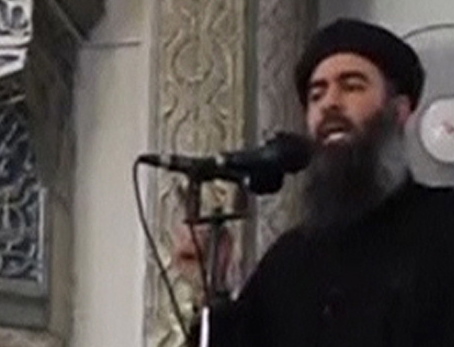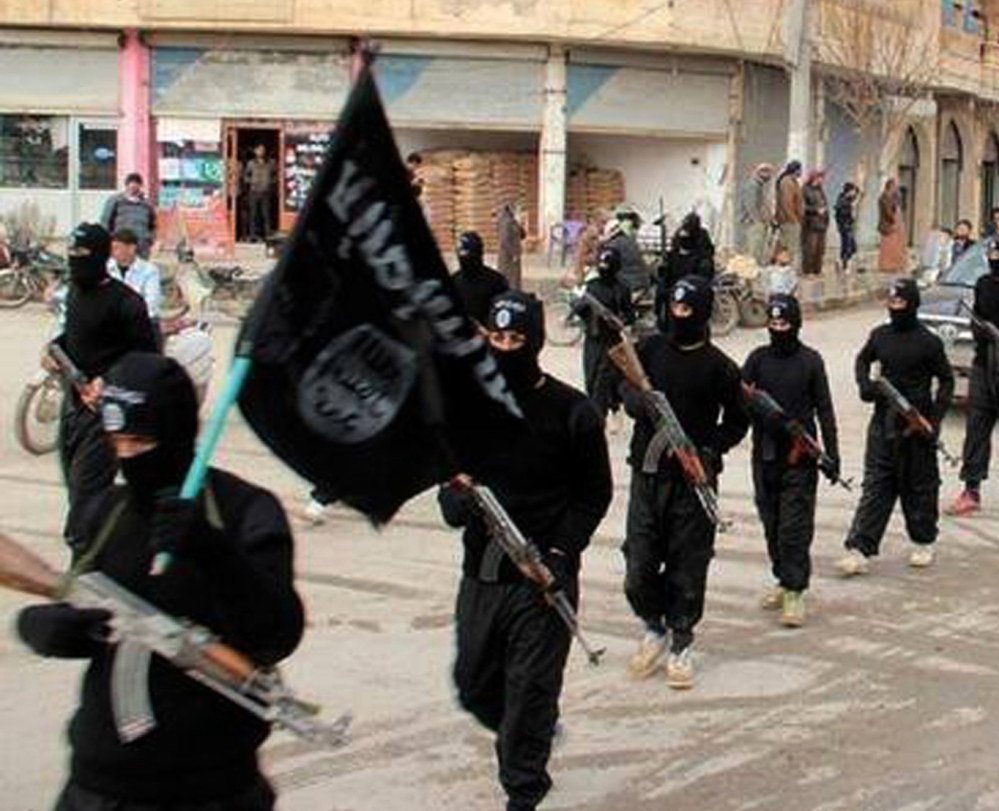BEIRUT — Islamic State’s capture of the Iraqi city of Ramadi and the ancient Syrian town of Palmyra are no ordinary conquests.
After weeks of fighting, Ramadi’s fall this past Sunday delivered the jihadist group control over a strategic highway linking Iraq and Syria, and a haul of weapons abandoned by Iraqi forces. Three days later, the al-Qaida breakaway group overran Syrian government troops to seize Palmyra, home to the ruins of a 2,000-year-old city that was one of the most important cultural centers of the ancient world.
With the first anniversary of the declaration of its caliphate a month away, the victories put the militants on the front foot at a time when their leaders are seeking to dispel any sense of weakness after recent defeats. In Syria, it now controls half of the country’s territory and most of its oil and gas fields, according to the Syrian Observatory for Human Rights, a Britain-based group that monitors the conflict.
“The fact Islamic State is still on the offensive is important, and the timing is important,” said Charlie Winter, a researcher at the counter-radicalization group Quilliam Foundation in London. Pushed into retreat, “it loses power and all the things that drive people to join it.”
The group’s supporters are already touting its latest feats, Winter said, posing the question on social media: “Last year it was Mosul, this year it’s Ramadi, and where will it be next year?”
For Islamic State leader Abu Bakr al-Baghdadi and his commanders, it’s a propaganda coup. In Iraq, Ramadi’s fall prompted Prime Minister Haider al- Abadi to turn to Shiite militias, whose abuses elsewhere have fueled enmity among Sunni tribes toward his government. Oil advanced as much as 2 percent on May 18 after the militants took control of the city, the capital of Iraq’s largest province.
The fight to confront Islamic State has sought to inflict battlefield losses, counter its appeal to disaffected Muslims and restrict its finances. As it rages, territory under the group’s control comes and goes, said Kamran Bokhari, an adviser for Middle Eastern and South Asian affairs at Texas-based consulting firm Stratfor.
“If they lose an area, they retain the ability to push into somewhere else,” Bokhari said from Toronto. Still, while there’s “a big hype created in the media regarding Ramadi, on the battleground, it’s business as usual: a few kilometers this way or a few kilometers that way,” he said.
The group has lost more territory in Iraq than it has in Syria, according to Bokhari.
Peshmerga fighters have made advances against Islamic State in Kurdish-populated areas of Iraq’s Nineveh province, and the group has lost footholds in the eastern Diyala province. The recapture of Tikrit, on the main north-south highway between Baghdad and Mosul, by government forces marked a strategic blow for the jihadists.
In Palmyra, Syrian government troops who had cordoned off the ruins were outnumbered and out-gunned by Islamic State militants, Syria’s Tourism Minister Bishr al-Yazigi said in a telephone interview from Damascus on Thursday.
The group will likely retain control over its heartland, especially in Syria, for the medium term, risk analysis company Verisk Maplecroft said in a recent research note. It’s “especially well-entrenched in Iraq’s Sunni hinterland and eastern Syria, which collectively remains the core of the group’s territory,” it said.
Islamic State’s resilience is made possible by its diverse sources of income. After losing control of some oil fields, it relied more heavily on taxation and extortion. It’s also bolstered by an ability to sustain local services and its deftness in convincing Sunnis in Syria and in Iraq that they’d be worse off under Shiite governments.
“We see what Islamic State is doing, the appalling brutality and the ruthlessness, but on the ground it has a complex and sophisticated outreach program in which it seeks to portray itself as the defender of the Sunnis,” said Winter of the Quilliam Foundation. That “creates big problems for the offensive against it,” he said.
Send questions/comments to the editors.




Success. Please wait for the page to reload. If the page does not reload within 5 seconds, please refresh the page.
Enter your email and password to access comments.
Hi, to comment on stories you must . This profile is in addition to your subscription and website login.
Already have a commenting profile? .
Invalid username/password.
Please check your email to confirm and complete your registration.
Only subscribers are eligible to post comments. Please subscribe or login first for digital access. Here’s why.
Use the form below to reset your password. When you've submitted your account email, we will send an email with a reset code.